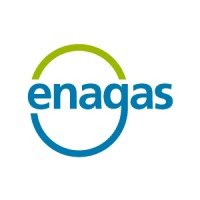Brazilian ports cities arming their energy portfolio with hydrogen

Hydrogen has been beeping on the radar of Brazilin ports recently. Last month, the port of Ceara announced its ambitious plan to build one of the largest hydrogen production hubs. Nearly a week apart, another Brazilian port also aims at the hydrogen market, H2Bulletin reports.
This time it was the state of Rio de Janeiro. Officials from the State government, the municipality of Maricá, the Port of Açu and the Brazil-Germany Chamber of Commerce and Industry (AHK) discussed Rio’s potential for hydrogen production.
The meeting aimed to explore ways to attract investment to Rio. Leonardo Soares, the State Secretary of Economic Development, Energy and International Relations, said that it is pivotal to add other energy sources, such as hydrogen, as a strategic component in the state energy matrix to achieve sustainability goals.
He also mentioned that hydrogen could be produced from natural gas, and given that the state natural gas resources, Rio could be an ideal place for such investment.
Filipe Segantine from the Port of Açu said that the port has been studying ways to penetrate the market. The state has abundant renewable energy resources that can be used to produce green hydrogen or natural gas, combined with carbon capture to produce blue hydrogen.
Igor Sardinha, Maricá’s Secretary of Economic Development, mentioned that the city has been working to establish an assembly line for electric and fuel cell buses.
Ansgar Pinkowski, a representative from the Brazil-Germany Chamber of Commerce and Industry, added that there is a high potential for hydrogen production in Rio, and a hydrogen-powered barge can even be used in Guanabara Bay.
The Port of Açu is in operation since 2014 and is owned by EIG Global Energy Partners. It is the only 100% private port in the country, according to the company. The port is also the second-largest iron ore terminal in Brazil and handles 25% of the country’s oil exports. It plans to build a major natural gas hub through its subsidiary Gás Natural Açu (GNA), which dealt with the first load of Liquefied Natural Gas (LNG) at its Regasification Terminal at the Port of Açu, last year.
Porto do Açu Operações also signed a Memorandum of Understanding (MoU) with Equinor to jointly assess the development of a photovoltaic solar generation plant in the Port of Açu’s project area over the next 12 months. José Firmo, CEO of Porto do Açu Operações, said that “Photovoltaic solar generation is the fastest-growing source in Brazil and the world.”
Equinor has been present in Brazil for nearly two decades, and it is the second-largest oil operator in the country. It has recently expanded its investments into renewable energy in Brazil, with 162 MW of solar energy installed capacity.
Meanwhile, the São Carlos- a municipality of the state of São Paulo- also signed (26th February) an MoU with the R20 (Regions of Climate Action) to study the feasibility of a hydrogen production plant. The municipality is aiming to deliver the feasibility study over the next 12 months.
José Galizia Tundisi, the municipality representative, stressed, “We will fight to achieve this innovative achievement, to place São Carlos as the only city in Brazil to have this technology.”
